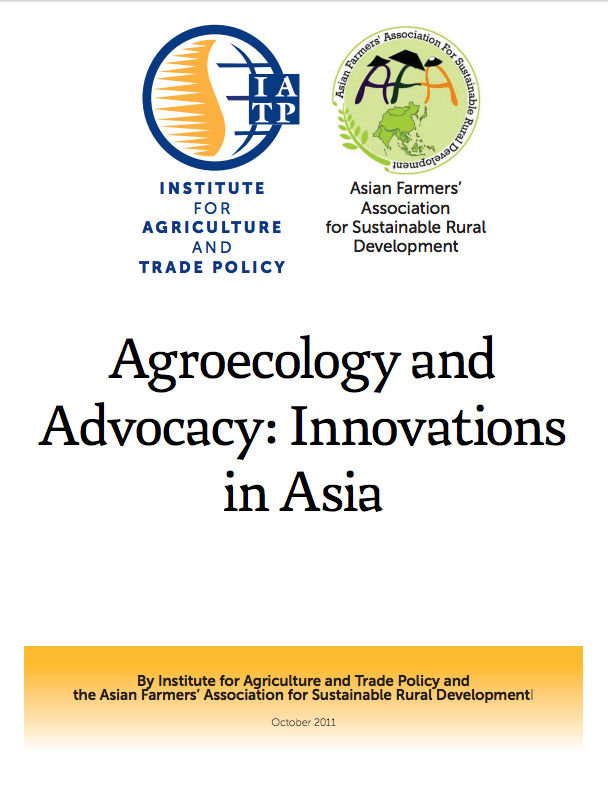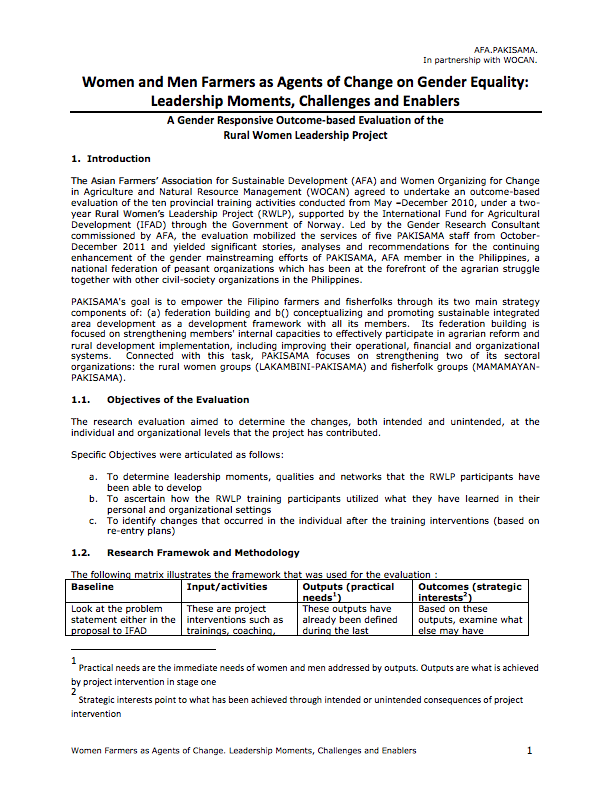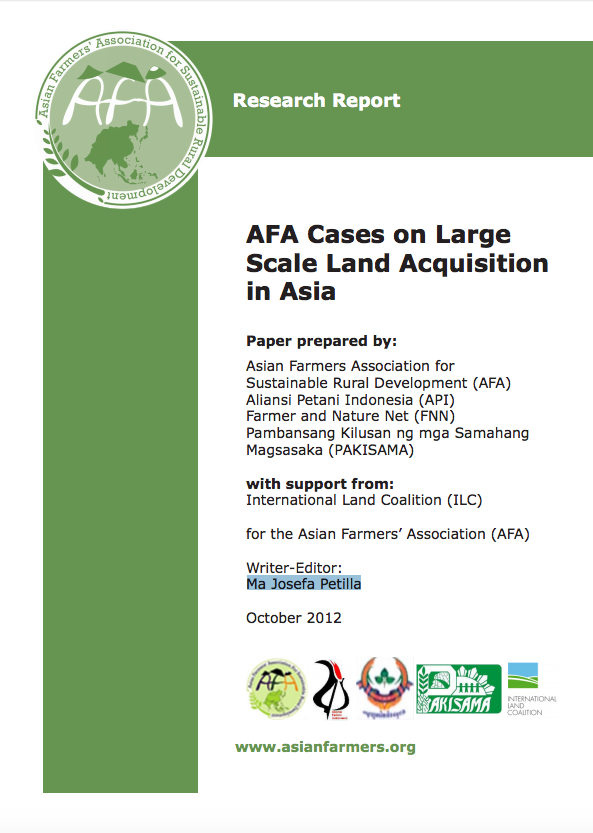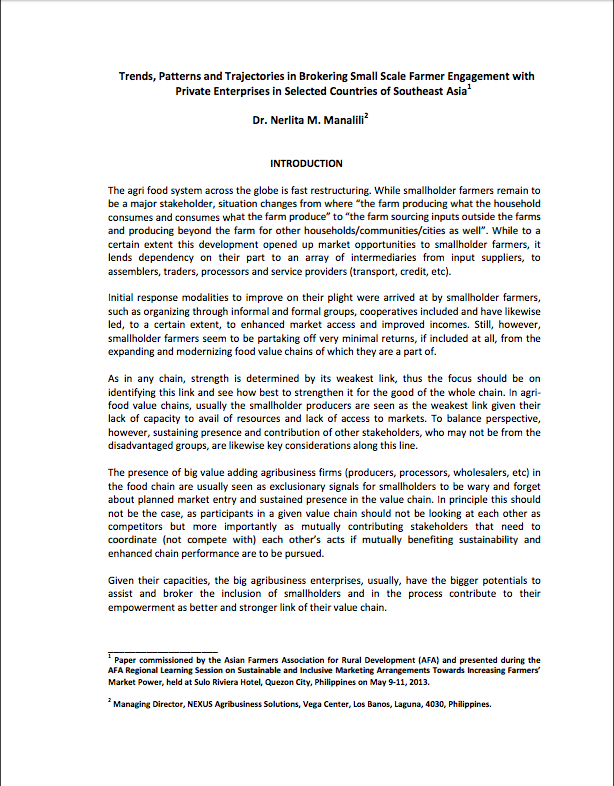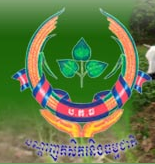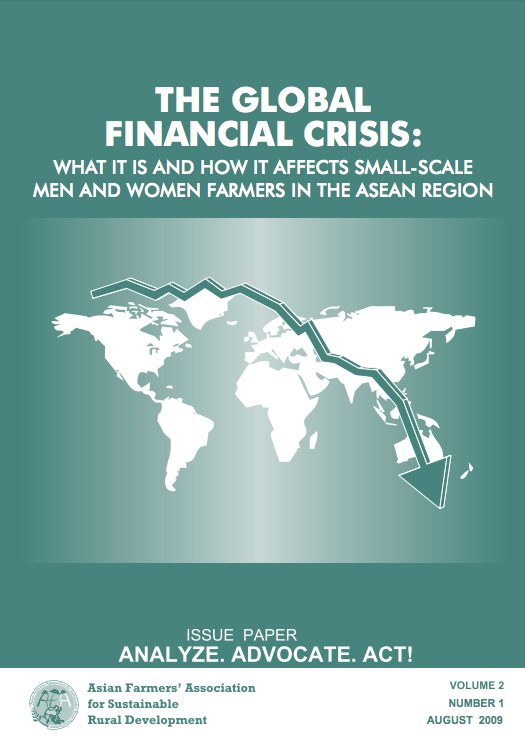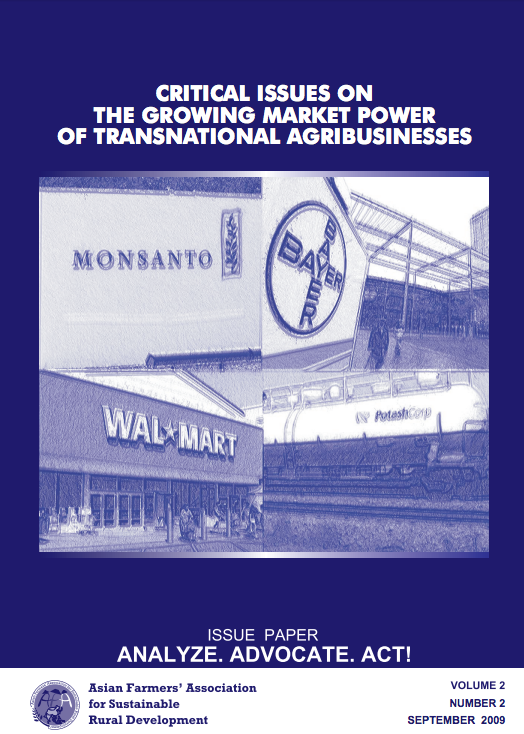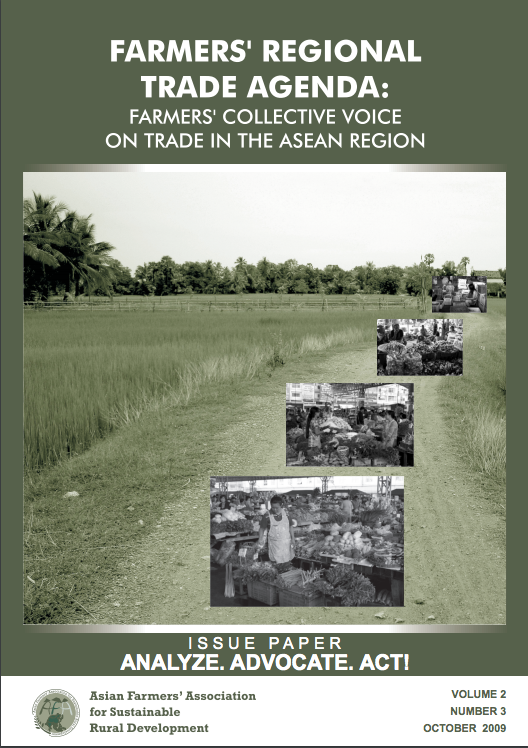Details
Location
Contributions
Displaying 1911 - 1920 of 2403Agroecology and Advocacy: Innovations in Asia
Rising food prices, increasing climate instability and food riots have sparked profound political changes around the world and put agriculture high on the international agenda. What kind of agriculture is best suited to respond to those challenges, however, is the subject of profound disagreement. Too much of the current policy debate on food security, climate change and agriculture assumes that industrial agriculture and related biotechnology are the only options for feeding a growing global population.
Women and Men Farmers as Agents of Change on Gender Equality: Leadership Moments, Challenges and Enablers
The Asian Farmers’ Association for Sustainable Development (AFA) and Women Organizing for Change in Agriculture and Natural Resource Management (WOCAN) agreed to undertake an outcome-based evaluation of the ten provincial training activities conducted from May –December 2010, under a twoyear Rural Women’s Leadership Project (RWLP), supported by the International Fund for Agricultural Development (IFAD) through the Government of Norway.
Widening the Dialogue on Large-Scale Land Acquisitions in Asia: A Regional Paper
AFA Cases on Large Scale Land Acquisition in Asia
Trends, Patterns and Trajectories in Brokering Small Scale Farmer Engagement with Private Enterprises in Selected Countries of Southeast Asia
The agri food system across the globe is fast restructuring. While smallholder farmers remain to be a major stakeholder, situation changes from where “the farm producing what the household consumes and consumes what the farm produce” to “the farm sourcing inputs outside the farms and producing beyond the farm for other households/communities/cities as well”.
Review of National Policy Framework on Tenure Rights in the Context of VGGT
The Voluntary Guidelines for the Responsible Governance of Tenure of Land, Fisheries and Forests in the Context of National Food Security (or VGGT) is the first global document that addresses policy, legal and organizational frameworks that regulate tenure rights. Adopted by the Committee on World Food Security1 (CFS) last May 2012, the VGGT provide guidance on responsible governance of tenure on land, fisheries and forests as a means to alleviate hunger and poverty, enhance the environment, support national and local development and reform public administration.
Farmer and Nature Net
ince 1998, farmers (mostly rice farmers) have started to organize themselves into village-based associations and network, with support from CEDAC. The associations are playing an important role in promoting mutual help, solidarity and cooperation among villagers, as well as coordinating and undertaking collective action in developing ecological agriculture, natural resources management, cooperative business practices and community development.
Climate Change: Causes, Impacts and Possible Responses in Asian Agriculture
Our unsustainable way of life is causing a crisis in our environment at a global scale. Climate change is threatening the future of our planet. The crisis is largely our own doing, and we also have the means to solve it, if we are willing to act on it. Farmers, fishers, and indigenous peoples, who live close to nature for their survival, are the most vulnerable to the effects of climate change. But they also have a special role to play in addressing climate change. What they need for survival - sustainable and ecological friendly practices - are also what are needed to heal our planet.
The Global Financial Crisis: What it is and How it Affects Small-Scale Men and Women Farmers in the ASEAN Region
This issue paper is about what is known as the “global financial crisis,” which is said to have affected the economies in Europe and North America and caused massive loss of jobs and bankruptcy in these countries. For some of us here in the developing world, the global financial crisis may seem very far from us and therefore, has no effect on us. We may even think that it is something that only concerns economists and the business sector.
Critical Issues on the Growing Market Power of Transnational Agribusinesses
WHAT IS MEANT BY AGRIBUSINESS?
Agribusiness as used in this paper refers to very big corporations that produce, process, trade, and market agricultural food products and agricultural inputs. Examples are corporations that produce inputs, such as seeds and fertilizers, and those that produce for supermarkets and retail chains. Transnational agribusiness companies are those that operate in the agriculture sector of many countries, usually with a huge volume of business.
Farmers’ Regional Trade Agenda: Farmers’ Collective Voice on Trade in the ASEAN Region
The Association of Southeast Asian Nations (ASEAN) has been trying hard to go into free trade agreements (FTAs) with different countries. It believes that this will increase trade and help members sell their export products to more markets in other countries. It also wants to make ASEAN the world's center of agricultural production. But in opening up markets and increasing trade, more imported goods from other countries can also come in.


